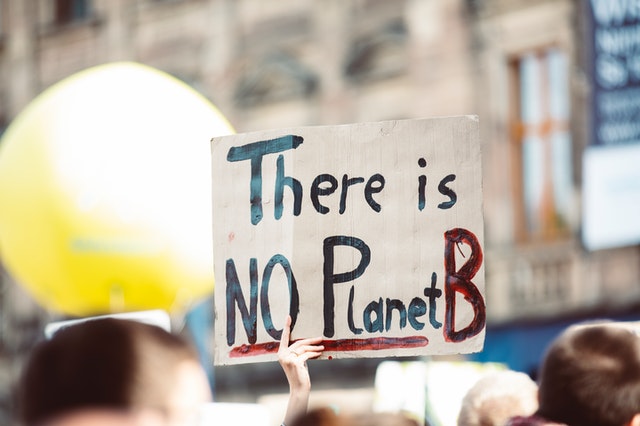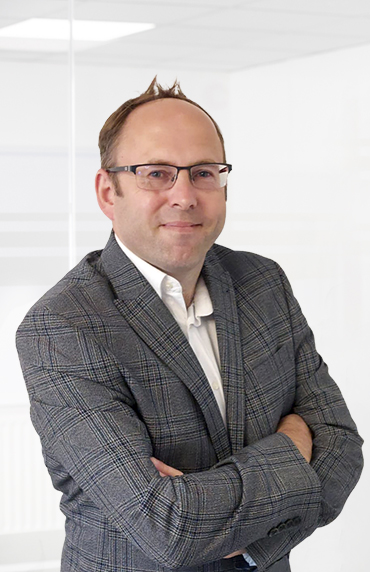IT Experts say COP26 Must Prioritise Global Electronic Waste
Ending the cycle of pushing new technology products should be a top target for the COP26 climate change conference, according to The Chartered Institute for...
Read Full Article
Facilities managers are on the front line of managing a behavioural transition to affect green change, according to Dr Stephen Wise.
When COP president Alok Sharma told global finance leaders they needed to embrace the ethos of 1990s green activist Swampy– it also provided an important rally cry for the UK’s FM community. The global spotlight on the green agenda has made one thing crystal clear – organisations and their people must become activists and ambassadors for change.
Dr Stephen Wise has spent more than 20 years in the waste, renewables and environment sector and is the Chief Strategic Development Officer for biotechnology business Advetec, which uses a unique in-vessel aerobic method to reduce residual waste in the food, retail, entertainment and leisure industries that would otherwise go to landfill or be incinerated. It is the only aerobic form of on-site mixed waste reduction in the UK.
"For FMs to become swampies, they must champion waste management at board level, educate business leaders about the waste journey and the technologies available and set their own targets."
As FMs often work on the environmental frontline striving for sustainable buildings, energy and waste management practices, they have a unique opportunity to turbo-boost the efforts of UK business.
Resources and waste have been largely overlooked on the COP agenda which is baffling – especially as they have a crucial role to play in reaching the net-zero targets which the global leaders were discussing. What this has done for the waste agenda is to galvanise efforts and demand action. A lot of that action will fall to FMs – not just in terms of devising strategy but delivering tactical changes, embracing innovation and finding new ways of doing things. They will have to become waste innovators and facilitators. They will become the “swampies of plc.”
In order to make the radical changes needed to achieve net-zero, we must address the fate of all waste, including non-recyclable. Every 100 tonnes of residual industrial and commercial waste that goes to landfill generates 47 tonnes of CO2e, plus the transportation of waste for disposal produces further CO2 and particulate emissions.
The new net-zero targets announced at COP26 will affect many more businesses, both for outsourced FM providers and in-house FM professionals. Rising costs of landfill and EfW, waste segregation targets and the increasing value of the green pound, have created the right conditions to drive change and innovate the way they collect, treat and ultimately dispose of waste.

Picture: a photograph of Dr Stephen Wise
This process starts with ensuring that FMs and their organisations have a greater understanding of the waste supply chain as a whole so that they can take full accountability for every single decision made. Part of that involves tackling myths and asking far more detailed questions of waste providers, their claims, their pledges and their practices; something which requires greater knowledge about the waste journey to begin with.
For example – many businesses say they send zero waste to landfill, and they believe that the vast majority of their waste is recycled. On the face of it, this is commendable – but often when you interrogate these statements, the reality is that zero goes to landfill because a large proportion of waste (particularly mixed residual waste which includes organics) goes to incineration or Energy for Waste (EfW) instead. Nor do they recycle as much as they think.
Energy for Waste sounds green but in this country, unlike most of continental Europe, 99 per cent of EfW plants don’t capture heat offtake. That means about half of the energy created from burning waste is lost into the atmosphere rather than harnessed for greater commercial use. If the waste arriving at an EfW plant has organic matter in it – it requires even greater temperatures to burn it, which just compounds the losses further. Add the transport-related carbon attached to EfW into the mix, and it starts to paint a much less green picture. Without heat offtake, EfW is inherently inefficient.
Part of the challenge is that when waste management contracts are in place, and data is readily available to support green efforts, it can be easy to rely on outsourced partners to do the green thinking. However, FMs need to understand their different waste streams, how they are handled, how they can be handled and how all of this fits within the wider waste journey. This knowledge will help FMs to query waste handlers’ choices, dictate desired waste outcomes and chart a course for continual improvement. It’s also part of ensuring that sustainability progress is genuine and considered – rather than simply a case of editing the facts.
Of course, reducing widespread use of landfill and EfW, relies on their being other affordable, accessible alternative solutions and there have been great strides forward with improved practices and the use of innovative treatment technologies – including:
As a country, we need to make sure that the value of waste isn’t missed. Innovation is crucial and there are some great projects out there – including looking at how plastics can be turned into low carbon fuels. We’re taking the challenge of innovation seriously too and investigating valuable uses for our floc (the remaining component after our biotech solution has treated waste). These sort of initiatives are the very embodiment of the circular economy – waste must be treated as a resource.
Waste might not have had the focus we’d have hoped for at COP26 – but it’s a crucial part of addressing climate change. For FMs to become swampies, they must champion waste management at board level, educate business leaders about the waste journey and the technologies available and set their own targets. There’s no room for inertia or for waste myths to prevail. It is greater scrutiny that will drive greater action and FMs are placed perfectly to lead that charge.
Picture: a photograph of an activism placard saying the words: "There is NO PlanetB"
Article written by Dr Stephen Wise | Published 12 November 2021
Ending the cycle of pushing new technology products should be a top target for the COP26 climate change conference, according to The Chartered Institute for...
Read Full ArticleCOP27, held in Sharm El-Sheikh in Egypt, is the 27th United Nations Climate Change conference, with around 40,000 people expected to attend. Over 100 heads of states...
Read Full ArticleA surgical team at Solihull Hospital has performed the world’s first documented net-zero operative procedure. The keyhole surgery was to remove a bowel cancer...
Read Full ArticleA British MedTech company is helping the NHS to reduce CO2 emissions in its clinical waste disposal by 95 per cent. It is hoped that this will save tens of millions of...
Read Full Article100 senior executives of UK construction firms were interviewed on sustainable design and engineering. The construction firms involved have collectively been involved...
Read Full ArticleA host of announcements that will affect how UK businesses address climate change coincided with COP26. As the dust settles on Glasgow-hosted summit, let's take a...
Read Full ArticleThe Eden Project has partnered with international architecture practice Grimshaw in the delivery of the Eden Project Pavilion at the UK-hosted 2021 COP26, in...
Read Full ArticleThe UK’s first product that enables employers to offer leased, zero-emission E-Bikes to their staff has been unveiled at COP26. Initially offered through a group...
Read Full ArticleThe Department for Business, Energy & Industrial strategy recently published a Net Zero principles report that recommended plant-based diets, however this was deleted...
Read Full ArticleOn 1 November 2021, world leaders from across the globe, businesses and activists will meet in Glasgow for the 26th rendition of the annual Conference of the...
Read Full Article